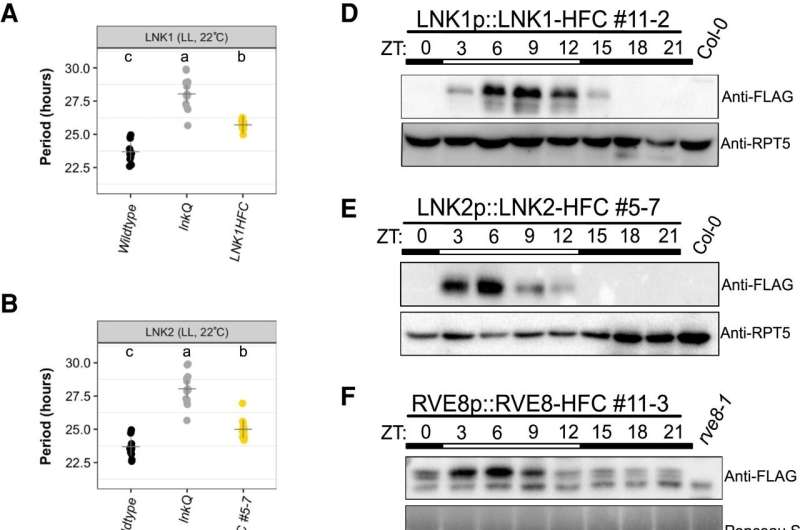
Have you ever wondered why you get tired when the sun goes down? Why some flower petals open during the day and close at night? Or even how monarch butterflies know when to migrate south? Life on Earth has evolved to predict what time it is. This mechanism is referred to as the circadian clock: plants and animals alike have rhythmic, biological responses to the Earth’s 24-hour and 365-day cycles using external cues like light and temperature.
Research led by Dmitri Nusinow, Ph.D., associate member, Danforth Plant Science Center, and former Nusinow graduate student Maria Sorkin, Ph.D., has identified a new protein complex in plants that regulates temperature response by the circadian clock. As climate change influences daily and seasonal temperature patterns—such as warmer nights and winters—it is critical to better understand how plants interpret and react to thermal cues.
Their findings, “COLD-REGULATED GENES 27 and 28 antagonize the transcriptional activity of the RVE8/LNK1/LNK2 circadian complex,” were recently published in the journal Plant Physiology.
“The clock is essential for plants to correctly respond to temperature stimuli,” wrote first author Sorkin, and scientists have uncovered a variety of ways in which the circadian clock helps plants acclimate to changes in temperature and survive stress—especially in model species like Arabidopsis.
“The circadian clock in Arabidopsis is well-studied,” mentioned Sorkin, “so the most exciting part of this project was finding a brand-new protein complex that regulates temperature responses. No one else had discovered this interaction, even in an established system.”
2023-05-01 12:50:06
Original from phys.org
